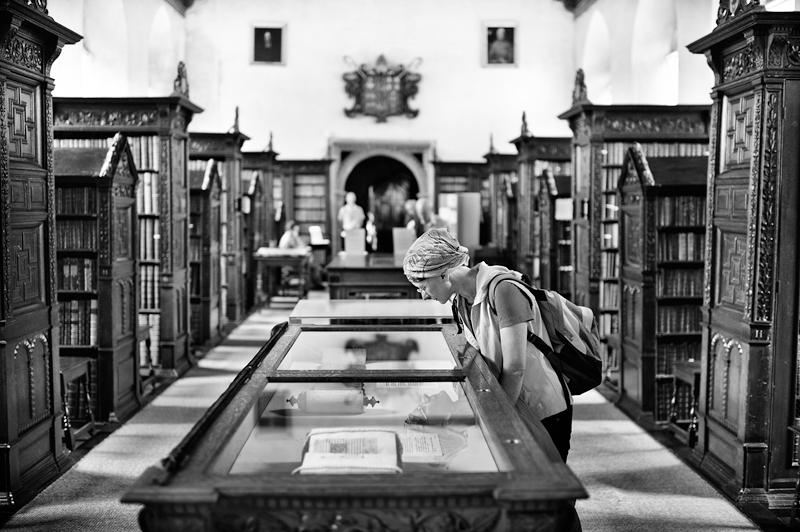Research is about discovery. For most historians, it is a joyful experience precisely because it is an intellectual journey of the unexpected. You never know what leads you might find; or, you might discover that a particular source has yet to be explored by others and ripe for analysis. Even if you are working on a topic, or a set of sources, that are well known to most historical researchers, you bring a unique perspective and analytical approach that is all your own.
Historical research is by nature a personal endeavor. Thus, your narrative and analysis are uniquely your own.
As simple as this sounds, a lot of thought and planning goes into historical research. Which content management tools do I use? How will I record my information? Does the archive place limits on what I can bring with me? How do I organize my photographs? Which books in my field should I read? Is there a danger of reading too much (and not getting to work on writing or producing my findings)?

Read broadly. Find the key works of research that exist on your topic. You want to figure out the spaces you can navigate that will allow you to say something new about your subject. Your goal is to spark a conversation among historians, which sometimes means pushing back on established narratives. As daunting as this sounds, no one wants to read a “re-tread” on a given subject. Once you have found your space, it’s time to put your research and primary sources to good use!
How do I get started? Read, read, and read about your subject/topic … and then begin formulating questions that may or may not become the research question for your project.
HISTORIOGRAPHY
Historiography is the study of the discipline of history. Its study requires you to consider how interpretations of a particular event changed over time. When analyzing, discussing, or writing about historiography, you are using secondary sources— not primary sources. This means working with articles and books written by historians in order to understand how interpretations of the past have evolved over time, and sometimes how historians enter into debates (even heated ones at times!) over sources and interpretations.
RESOURCES
- NC State’s Department of History has an old, a bit dry, but excellent “Step-By-Step Guide” on how to get started with historical research.
- We will refer to this page on a frequent basis.
- A similar webpage comes from the Massachusetts College of Liberal Arts course on Historical Methods & Literacy.
- Although somewhat focused on environmental history, the personal website of historian William Cronon offers a nice introduction to historical research, guiding students from the initial research question-stage to working with specific sources (photographs, maps, interviews, etc.).
- Make sure to explore the various menu items (located on the left) on the “Introduction to Historical Research” webpage of the University of Wisconsin-Madison Libraries.